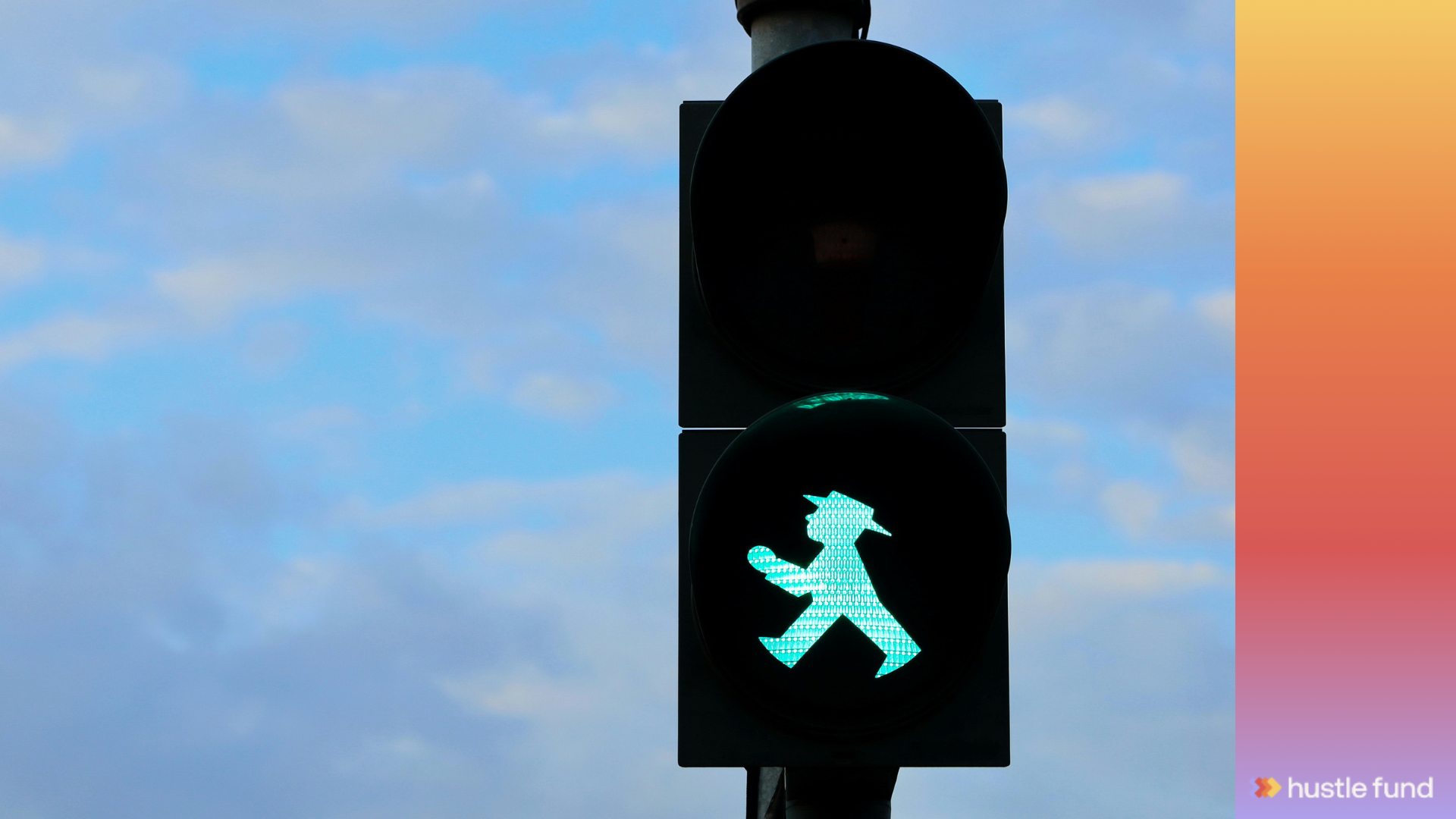What Kevin Rose's Investment Track Record Actually Teaches Us About Early-Stage Investing
.png)
Brian Nichols is the co-founder of Angel Squad, a community where you’ll learn how to angel invest and get a chance to invest as little as $1k into Hustle Fund's top performing early-stage startups.
I'll be honest: when most people think about Kevin Rose, they think about Digg. Or maybe his podcast. But if you're an early-stage investor and you're not studying Kevin Rose investments, you're missing out on some seriously tactical lessons.
Kevin has one of the most impressive angel investment track records in Silicon Valley. We're talking early checks into companies like Twitter, Facebook, Square, Airbnb, and Blue Bottle Coffee. And here's the thing: he didn't get lucky once or twice. He consistently identified winning companies before they became obvious bets.
So what can we learn from his approach? Let's dig in.
Who is Kevin Rose (beyond Digg)?
Kevin founded Digg in 2004, which became one of the early web's most influential platforms. If you weren't around then, Digg was basically Reddit before Reddit dominated. It was a social news site where users could vote content up or down, shaping what became popular.
Digg eventually sold for about $500k in assets after being valued at $200m at its peak. Not exactly a unicorn exit. But here's what matters: the experience of building, scaling, and yes, struggling with Digg gave Kevin insights that shaped his investing approach.
After Digg, Kevin became a partner at Google Ventures (now GV) from 2012 to 2015. But his most interesting work has been his personal angel investments, which started in the mid-2000s and includes some of the best-performing tech companies of the past two decades.
The pattern in Kevin Rose investments
After analyzing Kevin's portfolio, I've identified three clear patterns in how he evaluates opportunities:
He invests in products he personally uses and loves
This sounds simple, but most investors get it wrong. They invest in products that seem like they should work rather than products they actually want to use.
Kevin invested in Twitter when it was just a weird microblogging platform. He invested in Square when mobile payments seemed like a pipe dream. He invested in Blue Bottle Coffee because he genuinely loved the coffee.
This isn't just about following your interests. It's about having authentic conviction that comes from real usage. When you use a product every day, you notice things other investors miss. You see the retention signals. You feel the emotional connection users have with the product.
He backs founders who are obsessed with craft
Look at the Kevin Rose investments portfolio and you'll see a common thread: founders who care deeply about the details of what they're building.
James Freeman at Blue Bottle wasn't just selling coffee. He was obsessed with sourcing, roasting, and brewing the perfect cup. Jack Dorsey at Square wasn't just building payments infrastructure. He was obsessed with design and user experience.
Kevin recognizes that obsession with craft often leads to products that generate genuine love from customers. And products that customers love tend to have better unit economics, higher retention, and more defensible moats than products customers merely tolerate.
He thinks about platforms and networks
Many of Kevin's best investments have been in companies that benefit from network effects. Twitter, Facebook, Foursquare, Medium, Path. These are all platforms where the value increases as more people join.
This makes sense if you understand Kevin's background. Digg was an early social platform, so Kevin intuitively understands how networks grow and what makes them sticky. He knows that platform businesses, when they work, can scale faster and more profitably than linear businesses.
.jpg)
Breaking down specific Kevin Rose investments
Let's look at some actual investments and what they reveal about his strategy:
Twitter (2007)
Kevin invested in Twitter's Series A in 2007 when it was still figuring out what it wanted to be. Most investors saw Twitter as a toy. Kevin saw it as a new communication protocol.
What's interesting is that Kevin was an active Twitter user from day one. He wasn't investing based on pitch decks and financial projections. He was investing based on his own behavior and the behavior he saw in his network.
This is a key insight: the best product investments often come from recognizing your own changing behavior before the market does.
Square (2009)
Kevin invested in Square's seed round in 2009. At the time, mobile payments seemed like a solution looking for a problem. Credit card readers were clunky, but did small businesses really need to accept payments on their phones?
Turns out, yes. But Kevin didn't invest because of market size projections. He invested because Jack Dorsey was obsessed with making payments beautiful and accessible. And because Kevin saw how the iPhone created new opportunities for mobile commerce that didn't exist before.
The lesson: sometimes the best investments are in solutions to problems that don't seem urgent yet but will become obvious once the enabling technology reaches critical mass.
Blue Bottle Coffee
This investment shows Kevin's willingness to back non-tech companies when the fundamentals are strong. Blue Bottle wasn't building software or scaling through network effects. It was selling coffee.
But James Freeman was building a brand that people loved. The company had strong unit economics. And Kevin saw potential to scale a premium coffee experience in a market dominated by mediocre coffee.
Blue Bottle eventually sold to Nestle for around $500 million. Not bad for a coffee shop.
The lesson: don't limit yourself to software companies just because that's what everyone else in Silicon Valley is doing. Great businesses exist in every category.
Medium
Kevin invested in Medium's seed round in 2012. This was another Ev Williams project (Williams had co-founded Twitter), focused on creating a better publishing platform.
Medium has had a complicated journey. It's pivoted multiple times, struggled to find a sustainable business model, and hasn't become the dominant platform many expected.
But here's the thing: even investments that don't work out perfectly can teach you something. Kevin bet on a founder with a track record (Williams) solving a problem Kevin cared about (online publishing). The thesis was sound, even if the execution struggled.

What angel investors can learn from Kevin's approach
After studying Kevin Rose investments, here are the tactical takeaways that matter:
1. Invest in products you actually use
This is different from investing in industries you understand. You need to be a real user, not just someone who intellectually grasps the value proposition.
If you're evaluating a B2B sales tool, are you actually using it in your work? If you're looking at a consumer app, are you opening it daily? If not, you're probably missing important signals about retention and engagement.
The best product investments come from recognizing when you've changed your own behavior because a product is genuinely better than the alternatives.
2. Pattern match on obsession, not experience
Kevin doesn't just invest in experienced founders. He invests in founders who are obsessed with what they're building.
James Freeman didn't have a traditional business background. But he was obsessed with coffee. Jack Dorsey was young when he started Square. But he was obsessed with design and payments.
When you're evaluating deals, pay attention to how founders talk about their product. Do they light up when discussing specific features? Do they have strong opinions about details that seem minor? That obsession often matters more than years of experience.
3. Look for changing user behavior
Many of Kevin's best investments were in companies riding waves of changing user behavior. Twitter benefited from people wanting real-time information. Square benefited from the iPhone making mobile commerce possible. Blue Bottle benefited from consumers caring more about quality coffee.
When you're evaluating deals, ask: what behavior is changing that makes this product newly relevant? If you can't identify a clear behavioral shift, the company might be too early or solving a problem that doesn't actually exist.
4. Don't ignore non-tech opportunities
Blue Bottle proves that great investments aren't limited to software companies. If you find a business with strong unit economics, a product people love, and a path to scale, it doesn't matter if there's an API or not.
This is especially relevant for angel investors who have expertise outside of tech. Maybe you worked in restaurants and you see an opportunity in ghost kitchens. Maybe you worked in construction and you see an opportunity in equipment rental. Don't limit yourself to software just because that's what gets talked about on Twitter.
5. Accept that even good investors miss opportunities
Kevin passed on Uber. He passed on Airbnb initially. He's made investments that didn't work out.
The point isn't to have a perfect track record. The point is to develop a framework that helps you identify exceptional opportunities more often than not. And to stay in the game long enough that your winners more than make up for your losses.
The real lesson from Kevin Rose investments
Here's what studying Kevin's portfolio has taught me: the best early-stage investors aren't trying to predict the future. They're recognizing shifts happening in the present that most people are too busy to notice.
Kevin invested in Twitter because he saw his own behavior changing. He invested in Square because he saw the iPhone creating new possibilities. He invested in Blue Bottle because he saw people willing to pay more for quality coffee.
None of this required a crystal ball. It just required paying attention to real signals in the market and having conviction to act on what he was seeing.
For those of us making our own early-stage investments, this is the framework worth copying. Not Kevin's specific investments, but his approach to identifying them.
And if you want to practice this approach with real capital, Angel Squad gives you access to pre-seed and seed deals where you can apply these lessons with investments starting at just $1k. You'll be investing alongside experienced operators who are also learning to spot these patterns, and you'll get exposure to the types of companies that show the same early signals Kevin looks for: strong founder obsession, changing user behavior, and products people genuinely love using.
The best part? You don't need to have founded the next Digg to start investing like Kevin Rose. You just need to pay attention to what products you're actually using, which founders are obsessed with craft, and where user behavior is shifting in ways that create new opportunities.
Start there, and you'll be ahead of 90% of early-stage investors.













